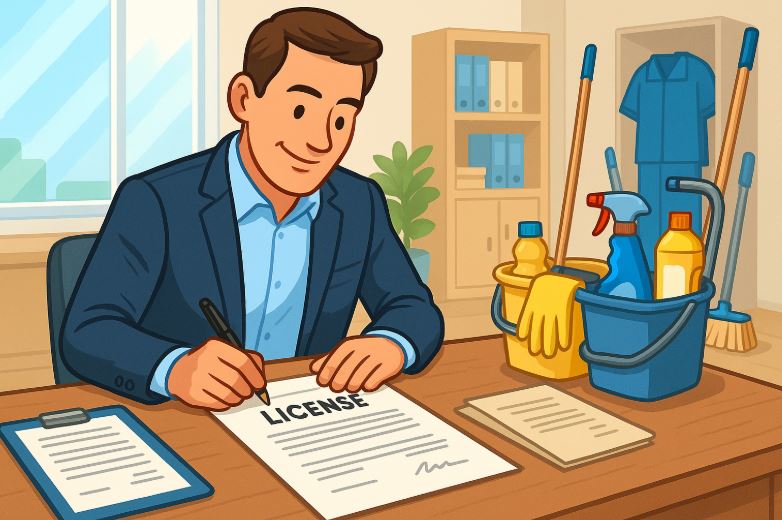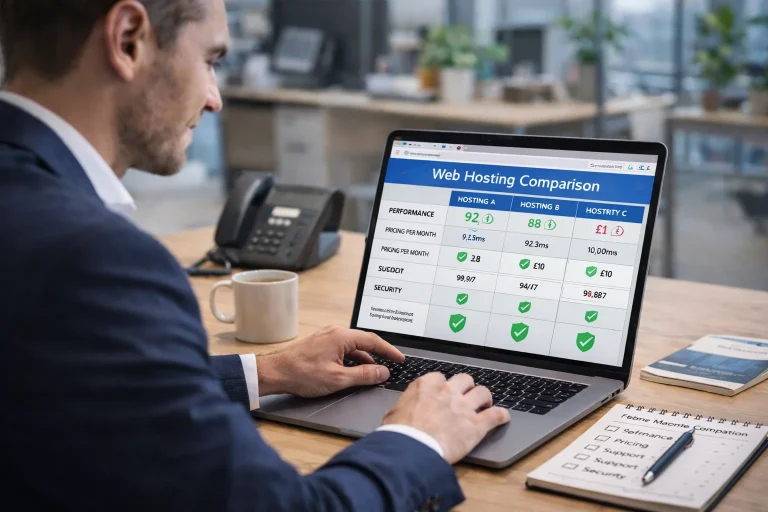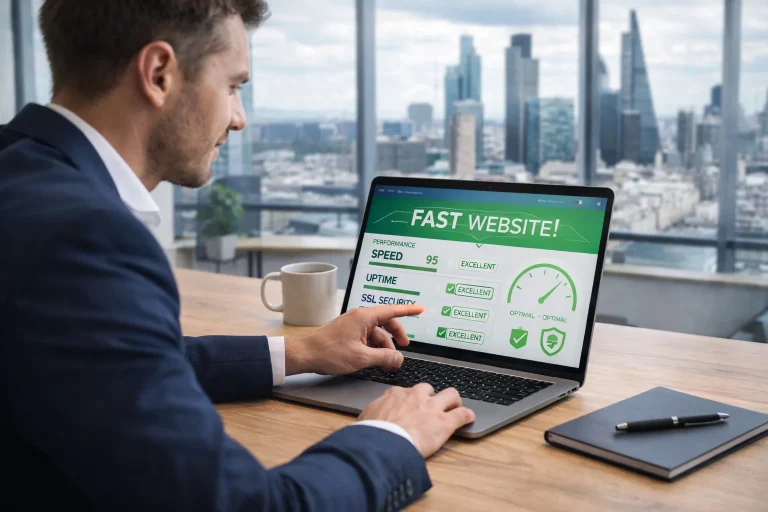Starting a cleaning business in the UK can be an excellent venture with strong demand across domestic and commercial markets.
However, before you begin offering services, it is critical to ensure that you are operating legally. So, what license do you need to start a cleaning business? Let’s explore the necessary licences, permits, registrations, and legal requirements you must comply with.
Why Do You Need a Business License to Start a Cleaning Business in the UK?

To legally operate a cleaning business in the UK, you must have the correct licences and registrations in place. A basic business licence allows your company to function within a local jurisdiction. It shows that your business is legitimate and compliant with local council requirements.
In many areas, you simply need to register your business with HMRC if you are operating as a sole trader or register a limited company with Companies House. However, if your services involve handling hazardous waste or using specific chemicals, additional permits and approvals may be necessary.
Additionally, depending on the location, councils might require special local operating permits. Therefore, it is advisable to check with your local authority for any particular regulations.
What Additional Permits Are Required for Specific Cleaning Business Activities?
While registering your business is the essential first step, depending on the types of cleaning services you intend to offer, you may also require specific additional permits and licences to remain compliant with UK law.
These permits ensure that your operations meet environmental, safety, and trading standards. Failure to obtain the correct permissions can result in penalties, business disruption, or damage to your professional reputation.
Waste Disposal Licence
If your cleaning business involves the transportation, collection, or disposal of waste, particularly from commercial clients, you must obtain a Waste Carrier Licence from the Environment Agency. This requirement applies whether you are handling hazardous materials, such as chemicals, or non-hazardous waste, such as general rubbish from office cleans.
There are two types of waste carrier licences:
- Lower tier licence: Suitable if you transport waste produced by your own business activities.
- Upper tier licence: Required if you transport waste produced by others or if you handle construction or demolition waste.
Even small domestic cleaning businesses that dispose of waste off-site may need to register, depending on the volume and type of waste. Operating without the correct waste carrier registration can result in fines up to £5,000.
Health and Safety Permits (COSHH Compliance)
Cleaning businesses often work with substances that could be hazardous to health, such as strong detergents, disinfectants, and industrial cleaning chemicals. In the UK, compliance with the Control of Substances Hazardous to Health (COSHH) Regulations is mandatory.
Although COSHH does not issue a formal ‘permit’, businesses must:
- Conduct and document risk assessments for all hazardous substances used.
- Train employees on safe handling, storage, and disposal practices.
- Maintain updated Material Safety Data Sheets (MSDS) for all chemicals.
Local authorities or the Health and Safety Executive (HSE) may inspect your business to verify COSHH compliance. Non-compliance can lead to enforcement actions, including improvement notices, fines, and in severe cases, prosecution.
Environmental Permits
If your cleaning business activities involve the discharge of pollutants into the air, land, or water — such as operating industrial cleaning equipment or using specific solvents — you may require an Environmental Permit.
These permits regulate emissions and environmental impact, particularly for businesses offering large-scale commercial or specialised industrial cleaning. Activities that may trigger the need for an environmental permit include:
- Decontamination of industrial sites.
- Cleaning operations that involve large quantities of volatile organic compounds (VOCs).
- Handling and storage of hazardous substances.
Obtaining an environmental permit ensures that your business meets strict environmental protection standards and operates sustainably.
Vendor’s Licence or VAT Registration for Sale of Cleaning Products
If your business not only provides cleaning services but also sells cleaning products, you may need to consider additional registrations:
- If selling directly to consumers or businesses, and your turnover exceeds the VAT threshold (£90,000 as of 2024), you must register for VAT with HMRC and charge VAT on applicable sales.
- Even if turnover is below the threshold, voluntary VAT registration can sometimes be beneficial to enhance credibility and reclaim input VAT on business expenses.
Additionally, businesses that set up physical or online stores for product sales may need to comply with trading standards regulations, which require clear labelling, pricing transparency, and safety compliance for products sold.
What Insurance Policies Are Essential for a Cleaning Business?

Insurance is a critical part of running a cleaning business responsibly in the UK. It not only protects your company from financial losses due to claims and accidents but also gives potential clients the confidence that they are hiring a legitimate, professional service provider.
Without the right insurance policies, a cleaning business risks severe financial liabilities, reputational damage, and possible legal penalties.
Here are the essential types of insurance every cleaning business should consider:
Public Liability Insurance
Public liability insurance is arguably the most crucial policy for cleaning companies. It provides protection against claims made by members of the public for injury, illness, or damage to their property caused by your business operations.
For instance, if you accidentally spill cleaning solution on a client’s expensive carpet or a customer trips over your equipment, public liability insurance can cover the legal costs and any compensation awarded.
Given the nature of cleaning services, where accidents can happen even with the utmost care, this insurance is highly recommended and often required to win larger commercial contracts.
Key features of public liability insurance:
- Covers third-party injury and property damage claims
- Protects against costly legal fees and compensation payouts
- Often required by commercial clients as part of their contractor agreements
Professional Indemnity Insurance
While public liability covers physical accidents, professional indemnity insurance protects against claims of professional negligence, errors, or omissions.
Suppose a client alleges that your cleaning services caused contamination or failed to meet contractual standards, leading to financial losses. Professional indemnity insurance would help cover the costs of defending your business and any compensation awarded.
This type of insurance is particularly useful for businesses offering specialist services, such as biohazard cleaning, post-construction cleaning, or industrial cleaning, where mistakes can have serious financial implications for clients.
Key features of professional indemnity insurance:
- Covers claims for negligent advice, service mistakes, or breach of duty
- Essential for businesses offering specialised or high-risk cleaning services
- Provides peace of mind when dealing with commercial contracts
Employers’ Liability Insurance
If you hire employees, even part-time, temporary, or casual staff, you are legally required by UK law to have employers’ liability insurance. It protects your business if an employee suffers injury, illness, or death as a result of working for you.
For example, if an employee slips while mopping a floor and sustains an injury, employers’ liability insurance would cover medical costs, legal expenses, and any compensation due.
Without this insurance, businesses face fines of up to £2,500 per day for non-compliance, making it a non-negotiable requirement for any cleaning company with staff.
Key features of employers’ liability insurance:
- A legal requirement for businesses with one or more employees
- Covers compensation and legal costs arising from employee claims
- Protects businesses from significant financial liabilities and penalties
How Do You Register Your Cleaning Business Legally?
The first legal step is to properly register your business. If you choose to operate as a sole trader, you must register with HMRC and complete a Self-Assessment tax return each year. Sole traders are responsible for their own tax payments and National Insurance Contributions.
If you plan to create a limited company, registration with Companies House is required. Limited companies must also register for Corporation Tax and possibly VAT if they exceed the earnings threshold.
Registration ensures transparency and helps build trust with clients.
| Type of Business | Registration Requirement | Authority |
| Sole Trader | HMRC Self-Assessment | HMRC |
| Limited Company | Companies House | Companies House |
What Are the Health and Safety Regulations for Cleaning Businesses?
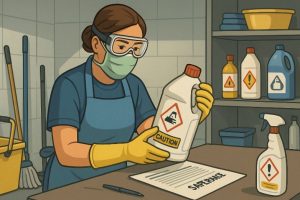
Cleaning businesses must adhere to several health and safety laws to protect workers and clients.
COSHH Compliance
Under COSHH regulations, cleaning businesses must identify harmful substances, conduct risk assessments, and implement measures to minimise exposure.
Documentation must be available demonstrating safe storage, handling, and disposal practices for hazardous cleaning agents.
ISO Certifications
While not mandatory, achieving certain ISO standards can greatly benefit a cleaning business:
- ISO 9001: Focuses on Quality Management Systems.
- ISO 14001: Focuses on Environmental Management.
- ISO 45001: Focuses on Occupational Health and Safety.
These certifications demonstrate your commitment to safety, quality, and environmental responsibility.
Do You Need Special Training or Certification to Start a Cleaning Business?
While no mandatory certifications are required to launch a cleaning business, training significantly enhances service quality and client trust.
The Level 2 Certificate in Cleaning Principles provides essential training on health and safety, infection control, customer service, and the correct use of cleaning chemicals. This formal recognition can set you apart from competitors operating without qualifications.
COSHH Awareness Training ensures that those handling hazardous substances understand legal obligations and how to implement safety protocols effectively.
Basic Health and Safety training, such as completing IOSH Working Safely courses, strengthens compliance with workplace safety regulations and can reduce insurance premiums over time.
Investing in training can lead to:
- Improved staff productivity and retention.
- Fewer accidents and claims.
- Enhanced client satisfaction and business referrals.
What Employment Laws Must Cleaning Business Owners Follow?
Hiring staff introduces a range of legal responsibilities that you must manage carefully.
The National Minimum Wage must be paid based on government guidelines, adjusted annually. Employers must keep thorough records of wages, hours worked, and holiday entitlements.
Key employer responsibilities include:
- Issuing written contracts outlining roles, pay, and working conditions.
- Providing workplace pensions under automatic enrolment if eligibility criteria are met.
- Handling income tax and National Insurance Contributions through PAYE.
Employers must also ensure that the workplace meets health and safety standards, provide necessary training, and protect employees from discrimination, harassment, or unfair dismissal.
Non-compliance with employment laws can result in significant financial penalties and damage to your business reputation.
How Can You Ensure Legal Compliance When Setting Up a Cleaning Company?
To remain compliant, it is crucial to approach legal obligations systematically:
- Begin by registering the business correctly, choosing the appropriate structure.
- Obtain mandatory insurances like public liability and employers’ liability.
- Check if additional permits such as Waste Carrier Licences are required.
- Maintain up-to-date health and safety policies, including COSHH compliance.
- Register for VAT if your turnover exceeds the threshold.
- Adhere to employment laws if hiring staff.
- Conduct periodic legal audits or seek professional advice to stay updated on regulations.
By putting legal compliance at the forefront of your operations, you reduce risks, protect your assets, and enhance client confidence in your cleaning services.
What Happens If You Operate Without the Required Licenses and Permits?
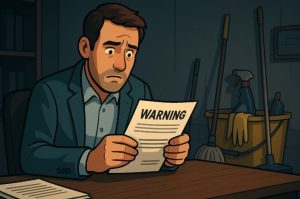
Operating without appropriate licences or insurance carries serious consequences:
- Fines and Penalties: Regulatory bodies can impose hefty fines for non-compliance with business registration, environmental standards, or employment laws.
- Business Closure: Repeated violations can lead to enforced closure or loss of contracts.
- Civil Claims: Without public liability insurance, a simple accident could bankrupt a business.
- Reputational Damage: News of non-compliance can spread quickly, deterring potential clients and partners.
Ensuring all licences, registrations, and insurances are in place from the start not only protects your business but also lays the foundation for sustainable growth.
FAQs
What insurance do I need for a cleaning business in the UK?
You typically need public liability insurance, professional indemnity insurance, and employers’ liability insurance if you hire staff.
Do I need a waste carrier licence for a domestic cleaning business?
Not usually. If you only remove small quantities of waste that are part of cleaning jobs, you may not need a licence. However, larger waste removals require registration.
Is COSHH compliance mandatory for small cleaning businesses?
Yes. All cleaning businesses must comply with COSHH regulations when using hazardous substances, regardless of their size.
Can I start a cleaning business from home in the UK?
Yes, you can operate from home, but you must still register your business and ensure compliance with local council regulations.
Do I need to register for VAT as a small cleaning company?
You must register for VAT if your annual turnover exceeds £90,000. Below this threshold, registration is optional.
What happens if I don’t have public liability insurance for my cleaning company?
Without public liability insurance, you are personally liable for any injury or property damage claims made against your business.
Is a professional cleaning certification mandatory to operate in the UK?
While not mandatory, certifications like a Level 2 Certificate in Cleaning Principles improve credibility and customer trust.

